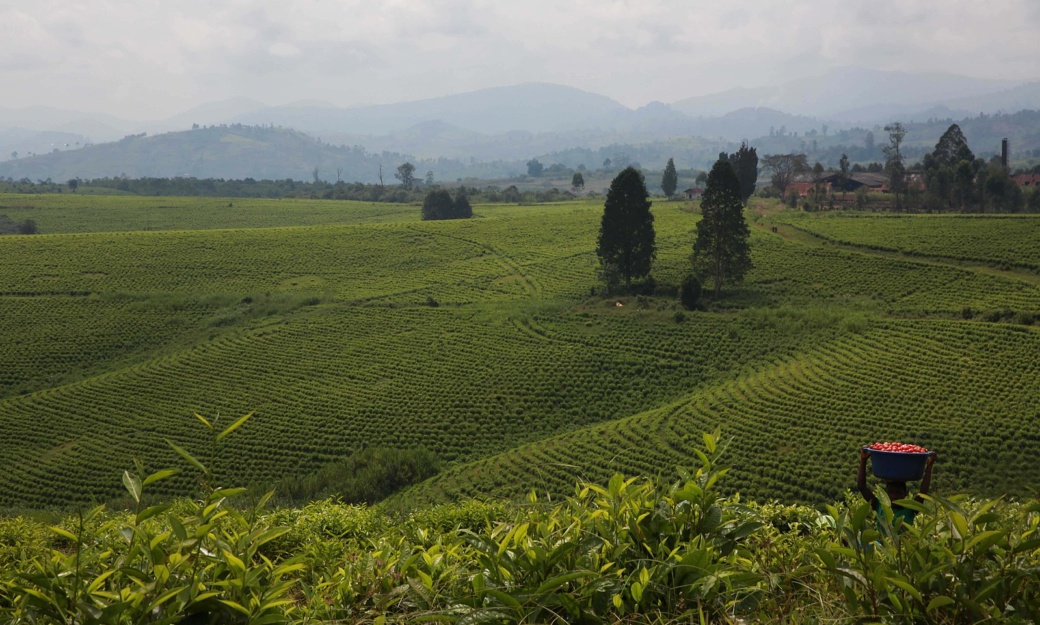
North Kivu, DR Congo | A woman going through a terraced tea field. Farmers in places like Congo who see cannabis as a profitable, stable crop must grow it at their peril. | Photo MONUSCO / Abel Kavanagh
Some of eastern Congo’s small-scale farmers are benefiting from a surprising—and illegal—crop.
Cannabis has become a major source of income for tens of thousands of farmers in Congo’s unstable east. It isn’t hard to see the appeal. “Cannabis (is) a robust plant which is easy to grow, requires little labor outside of harvesting and drying, yields several harvests per year, and can be harvested as early as six months from sowing,” writes Ann Laudati, a visiting professor at the University of California, Berkeley, who has interviewed more than 100 cannabis farmers in eastern Congo. “They’re making a living off it,” said Laudati. “They’re not getting rich, but they’re surviving.”
Congo isn’t alone. “The highest levels of cannabis production in the world take place on the African continent,” according to the UN. In 2005, Africa produced an estimated one-fourth of all global cannabis. In 2005, seventeen African countries reported that cannabis use was on the rise, including Congo. Be it by land or by sea, the drug also makes its way outside Congo’s porous borders. Quite possibly it’s what’s being smoked by western expats and humanitarians in African cities as far away as Nairobi.
But there’s one major factor limiting the crop’s proliferation: Cannabis is illegal in Congo, as it is in almost every African country. Since 2011, there have been more cannabis seizures in Africa than anywhere else in the world. Africa’s crackdown on cannabis reflects an international narrative that blames cannabis for all manner of the continent’s ills–the product of a century of European and U.S. pressure meant to stop it. According to the RAND Corporation, “in no Western country is a user at much risk of being criminally penalized for using marijuana. “ At a time when the United States is rapidly decriminalizing marijuana at home, it continues to endorse a narrative that demonizes the drug abroad.
Read the full article at Columbia Global Reports.